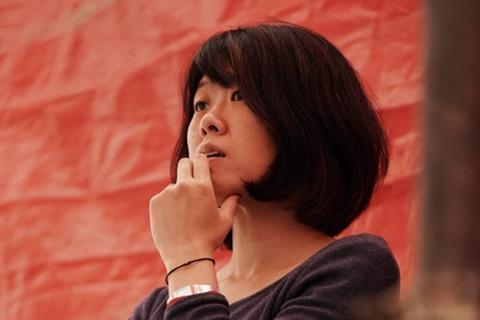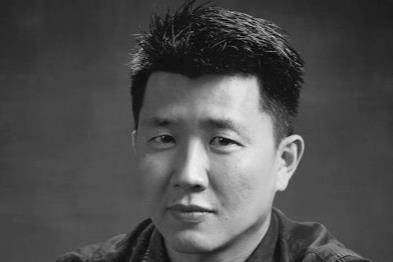Filmmakers from the region making their names on the global stage include ’Left-Handed Girl’ director Shih-Ching Tsou.
![[L-R clockwise] Estela Valdivieso Chen, Singing Chen, Jeff Tsou, Shih-Ching Tsou, Lau Kek-Huat](https://d1nslcd7m2225b.cloudfront.net/Pictures/480xany/7/0/8/1463708_tcfffilmmakers_12436.jpg)
As an increasing number of Taiwanese filmmakers win commercial and critical acclaim, Screen profiles five leading producers and directors making their names on the global stage.
Estela Valdivieso Chen, producer

In the early days of her career, Chen worked on productions with acclaimed directors Tsai Ming-liang and Ang Lee, where she gained experience in cross-cultural collaboration on different scales.
“Co-productions are becoming part of our everyday work, not only to find financing but to connect different cultures through shared storytelling,” she says. “Taiwan’s openness makes it easy to collaborate across Asia and Europe, and that exchange is helping us grow.”
Tracy Choi’s Girlfriends, which recently premiered at Busan, is a collaboration between Chen’s Taiwan-based Serendipity Films and partners from Macao, Thailand and Hong Kong.
Her upcoming international slate includes Iranian director Amir Naderi’s Now Or Never, Japan-based Indian director Anshul Chauhan’s High Season and Tokyo-based UK filmmaker Arif Khan’s The Silent Scream. Taiwanese director Hsieh Pei-Ru’s female-led crime comedy Grannies’ Heist will start filming in 2026.
“Producing from Taiwan is working between limits and possibilities,” says Chen. “The industry here is small but full of creative people with strong voices. Budgets are limited and financing is harder, but we know how to be practical and inventive.
“Taiwan’s well-established public funding gives local filmmakers the freedom to take creative risks that might not happen in a purely commercial system,” she adds.
Chen’s operations are expanding, having recently established Macao-based Serendipity Production and new distribution arm Serendipity Distribution in Taiwan. Maria Nicollier’s Road’s End In Taiwan, which she produced as the first Switzerland-Taiwan co-production, is Serendipity Distribution’s first title for theatrical release.
Singing Chen, director

Multidisciplinary filmmaker Chen made history by clinching two top prizes in Venice Film Festival’s Immersive competition, with The Man Who Couldn’t Leave winning best immersive experience in 2022 while The Clouds Are Two Thousand Meters Up scooped the grand prize this year.
Chen has worked as a fiction and documentary film director since her 2000 debut feature Bundled, with further work including 2008 feature film God Man Dog, which played in the Berlinale’s Forum, and 2014 documentary The Walkers. She explored the world of virtual reality when Kaohsiung Film Archive approached her to make Afterimage For Tomorrow in 2018.
“Some of the themes that can be best applied through this new medium have always been in my narrative and documentary films – life and death, memories and recollections, time and space,” she says. “It allows me to create a different level of sound and visual experiences, sensations that traditional cinema cannot achieve.”
Chen adopted Six Degrees of Freedom (6DoF) technology for The Clouds Are Two Thousand Meters Up, which allows users to move freely in 3D space. However, she says she is careful with the advancements. “When the technology is too overwhelming, the storytelling will get sidelined,” says Chen. “We have to find the right balance as storytelling is still important.”
Chen is prepping The Ancient Tree, an environmental-themed fantasy drama about a man who can communicate with plants, starring Tseng Jing-hua. It is a Taiwan-France co-production with funding from CNC Cinéma du Monde.
Lau Kek-Huat, director

Malaysia-born director Lau, who has made Taiwan his home for the last 19 years, won the best documentary prize at both the Golden Horse Awards and Taipei Film Festival last year with From Island To Island, a 290-minute film that unearths buried memories of the Second World War under Japanese rule in Taiwan and other parts of Asia; the title also won the grand prize at Taipei.
Lau has crossed between narrative and documentary films. His second narrative feature, Malaysia-set The Waves Will Carry Us, is vying for five Golden Horse Awards including best film and best director.
The film is about a Malaysian Chinese family who experience a series of absurd yet comical run-ins with the religious police over the funeral of their father. Abang Adik director Jin Ong is a producer and the film has support from Taiwan’s Ministry of Culture, TAICCA and Taipei Film Commission.
“The subjects you care about ultimately shape the form,” says Lau. “I see both [fiction and documentary] as acts of collaboration that grow organically when you open yourself to encounters with the real world and real people. The difference is that fiction films demand an even deeper sense of empathy and honesty, precisely because they grant the filmmaker greater freedom to imagine and invent.”
Lau’s feature documentaries such as Absent Without Leave (2016), The Tree Remembers (2019) and Taste Of Wild Tomato (2021) focus on historical trauma and political persecution. His narrative feature debut Bolumi was selected for Busan’s New Currents competition in 2019.
Jeff Tsou, producer

Known for The Rope Curse horror film trilogy, producer Tsou has earned further accolades from 96 Minutes, Taiwan’s first major disaster action film set on a high-speed train. The feature has become a runaway success as the highest-grossing local film at Taiwan’s box office this year to date.
“Producing a large-scale action film requires a much higher budget than a horror movie,” says Tsou, referring to the $5m budget of 96 Minutes. “From the beginning, we aimed to create something with cinematic scale and high entertainment value that could reach a broader audience and justify the investment through its box-office performance.”
Funding is always a key challenge but the producer has built long-term relationships with investors who believe in his vision for high-concept projects due to the commercial success of The Rope Curse trilogy, which has grossed $6.6m (NT$202.3m). The third instalment was the second-biggest local film in 2023.
The Rope Curse 4 is being shot in Indonesia with a Taiwanese and Indonesian cast. “It marks an important step in bringing the franchise into a more international setting,” says Tsou.
All four features are directed by Liao Shih-han as standalone stories that revolve around a local ritual performed to lift the curse that resides on the rope after a suicide. Tsou is also developing the script for a sequel to 96 Minutes with the first film’s director Hung Tzu-Hsuan.
Shih-Ching Tsou, director/producer

After co-directing 2004’s Take Out with Sean Baker, Taiwan-US filmmaker Tsou made her solo feature debut with Left-Handed Girl. The melodrama about a single mother and her two daughters making ends meet in Taipei’s night markets premiered in this year’s Cannes Critics’ Week and has been chosen as Taiwan’s entry for the 2026 Oscars.
It is also leading the Golden Horse Awards with nine nominations, including best film, best new director and best editor for Baker who is also the co-writer and producer. Tsou has been a close collaborator of the Oscar winner for more than 20 years, spending much of her career producing his films including Starlet, Tangerine, The Florida Project and Red Rocket.
Back in 2010, the duo completed the first draft of the script for Left-Handed Girl and even began casting, but financing from the US for a Taiwan-set Mandarin-language film proved difficult to secure at the time.
However, Tsou never gave up on the deeply personal story. Her grandfather would request that she not use her left hand as it was “the devil’s hand”, she says, and the tale is “rooted in memories of growing up in Taiwan”.
It finally came to life when executives at French sales and production company Le Pacte read the script and saw its potential after the premiere of Red Rocket at Cannes 2021. It went on to gain the support of Taipei Film Fund.
Regarding her next project, Tsou says she has been collecting story ideas while presenting Left-Handed Girl at festivals and cities such as Cannes, Toronto and Busan.















![[L-R]: Amanda Villavieja, Laia Casanovas, Yasmina Praderas](https://d1nslcd7m2225b.cloudfront.net/Pictures/274x183/6/4/1/1471641_pxl_20251224_103354743_618426_crop.jpg)









No comments yet